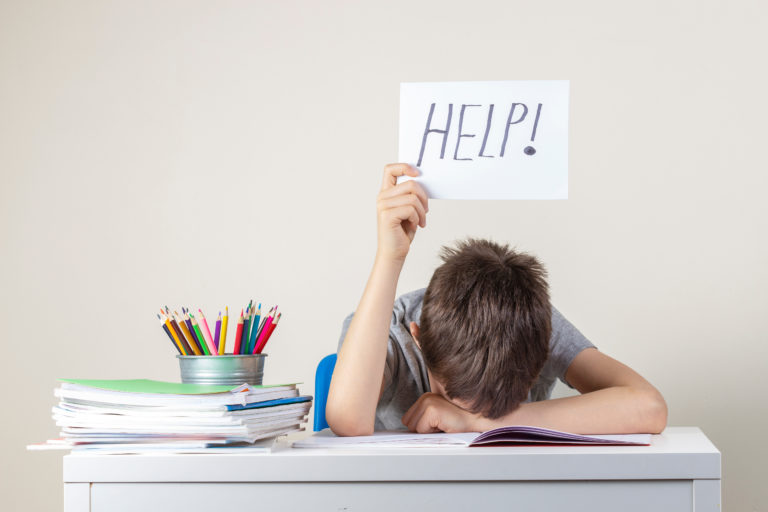Learning to read is a complex process that requires a strategic approach rooted in the science of reading. As parents, it’s natural to want to support your child and help them learn to read, but some well-intentioned efforts might not be as effective as you think.
3 common mistakes that could hinder your child’s progress:
Unintentionally Pressuring a Child
Putting too much pressure on a child to read before they are developmentally ready has been shown to lead to frustration (for both you and your child) and to a negative association with reading, which, let’s face it, should be precious time together. Forget the social pressure to have your child read before starting school or be able to write their name. Wait until they are developmentally ready for both.
Instead, create a literacy-rich environment by exposing your child to books, playing phonemic awareness games, and encouraging a love for storytelling. A stress-free atmosphere will foster a positive relationship with reading and be much more enjoyable for you both.
Does Reading to Your Kids Help Them Learn to Read?
Reading to your child helps build vocabulary, comprehension, and listening skills. However, to learn to read independently, they need explicit instruction in phonics (letter-sound relationships) and decoding strategies.
To help your child learn to read teach them sound-letter correspondences and encourage them to practice sounding out words. m-a-t, c-a-t. The sound /m/ is represented by this letter, pointing to the <m>, say /m/ here and so on.
Thinking Picture Books Teach Children to Read
Picture books can be fun and can spark imagination whilst encouraging a love for storytelling. However, they will not teach your child to learn to read. Relying solely on picture books without teaching foundational reading skills can result in children memorising words rather than developing decoding abilities.
To support reading development, incorporate books with a structured approach to phonics and gradually introduce more complex texts that challenge their reading skills. I am a big supporter of decodable books and have first-hand experience witnessing many children develop confidence and reading ability using them.
You can read more about the benefits of decodable books in that post.
What Are The Best Ways To Help My Child Learn To Read?
Here’s what works for children to become successful readers:
Master Sounds and Build Phonemic Skills
Phonemic awareness—the ability to hear, identify, and manipulate individual sounds in words—is a crucial pre-reading skill. Activities like rhyming games, segmenting sounds, and blending sounds help children develop this skill before moving on to phonics instruction.
Structured Phonics Instruction
Teaching children the relationship between letters and sounds in a systematic way helps them decode words effectively. Programs that follow a structured phonics approach have been proven to be THE MOST EFFECTICE in building strong reading skills.
Practice with Decodable Books
Decodable books that align with a child’s phonics knowledge allow them to practice their decoding skills without relying on pictures or guessing. This reinforces the connection between sounds and letters, strengthening their reading ability.
Other Important Questions Answered
What Are the Factors That Affect Children’s Reading Ability?
Several factors influence reading development, including:
– Phonemic awareness
– Access to quality instruction
– Home literacy environment
– Developmental readiness
– Exposure to language and vocabulary
Why Can’t My Child Learn to Read?
If your child is struggling to learn to read, it could be due to a variety of reasons such as a lack of foundational phonemic skills, inadequate instruction, or underlying learning difficulties like dyslexia.
What Causes Reading Problems in Children?
These are the common causes of reading difficulties include:
– Poor phonemic awareness
– Weak phonics instruction
– Lack of reading practice
– Processing difficulties
– Environmental factors such as limited exposure to books
How to Tell If a Child Has a Reading Disability?
Signs of a reading disability include:
– Difficulty recognising letter sounds
– Struggling with blending sounds into words
– Avoidance of reading activities
– Slow reading progress despite effort and ability
If you suspect a reading disability, seeking an evaluation from a specialist can provide clarity and support. Read more her about Dyslexia.
What Is the Best Intervention for Struggling Readers?
The most effective intervention for struggling readers involves explicit, systematic phonics instruction combined with targeted practice in phonemic awareness skills, fluency, and comprehension. There are programs which follow these principles and that have been rigorously tested for effectiveness, therefore can call themselves “evidence-based”. These programs will benefit a struggling reader.
Conclusion
While it’s easy to fall into common misconceptions about learning to read, understanding what truly supports literacy development can make a world of difference. By focusing on phonemic awareness, structured phonics, and effective reading strategies, you can set your child up for reading success.






